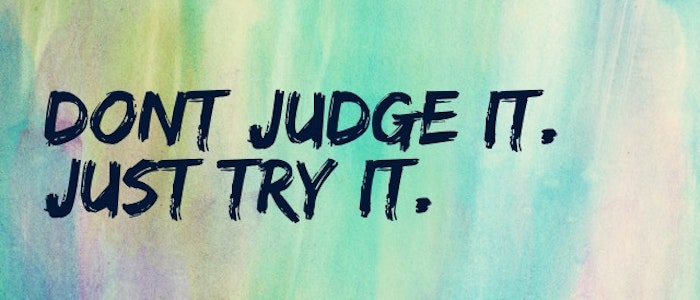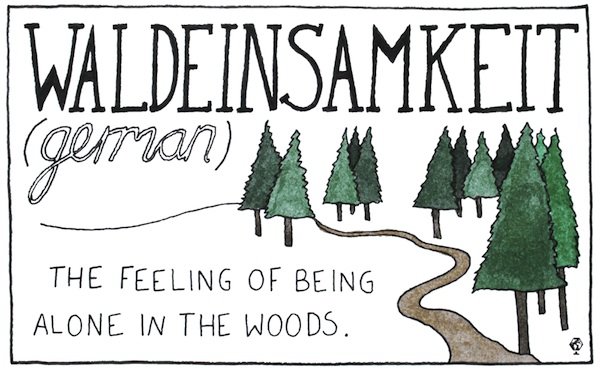

Ram Dass has a great quote:
If you feel you're enlightened, go spend time with your family.
I feel the same way about work. I can sit on my meditation cushion all I want or have the best yoga practice in the history of yoga practices, but it often takes one rough meeting or conversation at work to get my knee-jerk reactions to start coming out.
Good news is that I am aware of this. Difficult news is that I have way more work to do in bringing my increased awareness and mindfulness off the yoga mat and into real life. More specifically, into my work.
I believe creating a process works better than setting goals. So I've come up with 3 small things I'm going to try for the next few months to see if I can get my non-reactive, aware and present self to come from the yoga mat and into my work more often.
Perhaps you want to give them a try, or maybe they will make you think of your own idea. Either way, with the spirit of the new year, I figured it's a good time to try something new. So here we go:
Mindful email
My first suggestion is not my idea at all. I'd heard it in an interview with Mirabai Bush, who is one of the people responsible for bringing the practices of Buddhism and meditation to the U.S. and who has been teaching contemplative practices at work for several decades. Here's how mindful email works:
- Write your email, whether from scratch or as a response to someone's email.
- When you're done writing, take 3 deep breaths. Really focus on the breath. Count them.
- Read your email again and try to do this from the perspective of the person receiving the email. Focus on the emotional aspect of the email -- how would they feel reading it?
- Make any changes you think you should or leave your email as you wrote it, and then send it.
Most of our in-person communication is non-verbal -- how we say something matters more than what we say.But most of our non-verbal cues, including posture and facial expressions, are lost in email, making it a difficult communication medium. When you take a pause and consider the emotional impact of your email, you'll be able to see if you need say things differently so that it sounds how you actually intend for it to come across.
Kinder meetings
I feel like meetings are the new plague -- everyone has them, no one wants them.
They aren't going anywhere soon so I invite you to look for ways to make your meetings kinder, whether you're calling them or participating in them. If you can make one person in a meeting feel a bit warmer, happier, more cheerful, you'll change the entire dynamic. Kindness has been shown to have ripple effects -- when you do something kind, the other person feels happier, and happier people do more kind things.
I had to go to a meeting recently I was dreading. There was nothing wrong with it, but it was a rainy day, I wasn't feeling great, and I'd have to drive through a ton of traffic to get there. I'd also not finished the writing I'd planned for the morning and was feeling rather unaccomplished.
When I showed up everyone was getting ready to start, heads down reading the documents that were distributed prior to the meeting. The room felt flat, low energy. Perhaps the rain and the traffic were getting everyone down.
So I took out my phone and showed one of my recent paintings to the person next to me. We'd just met at this meeting, I didn't know him, so I just said something like: "While we wait, can I show you something I tried to paint recently?"
We talked about my passion for painting and how I'd recently given it an outlet, something I've not done in decades. He then started telling me about restoring old boats, something he loves to do. One of the guys across the table joined in, his passion was traveling to really exotic spots. Shortly the entire room was talking about things everyone did for fun.
In just a few minutes, the energy in the room changed completely. Everyone was sitting up, looking at each other, ready to roll. It was a great meeting, and I didn't really mind the traffic on the way home.
You can do the tiniest things to make your meetings kinder:
- As someone walks up to the conference room table, pull out the chair for them or move your stuff so they feel welcomed to sit down.
- If you're grabbing a drink or a snack for yourself, get one for one other person in the room.
- Pay a compliment to someone in the meeting -- find the best way to do it, perhaps privately before or after, or, if appropriate, during the meeting.
- Thank someone -- for helping you with something earlier or simply for holding the door as you walked in.
- Share something funny or interesting to make the meeting less sterile and encourage others to participate.
- Give your full attention. This might be the greatest act of kindness we can all give to each other -- when someone is talking, put away your phone and even notes, and just listen. Having been on the receiving end of this, I can tell you it feels AMAZING.
30-second self pep talk
It's amazing the negative thinking spiral we can go on when something bad happens at work.
We get poor feedback on a project and suddenly we're the least competent human on the face of the planet. Or someone is not nice to us in a meeting and from that point on they are a pariah to be hated and avoided.
Try this instead. (Warning: It seems annoying and difficult. It IS annoying and difficult the first few times you do it. Once you see what it does for you, it becomes one of your favorite things to do. I am serious.)
When something negative takes place, pause and for 30 seconds and step outside yourself. Literally picture yourself stepping outside your body and asking yourself this question:
If there is a reason for why this just happened, what could it be?
I told you this would be annoying and difficult. Who wants to think about something good that can come out of a bad meeting or a poor performance review? But this isn't simply saccharine advice and I ask you to put aside your judgment and just play along the next time you run into an issue at work.
Here's the reality: The benefits of something bad happening aren't always apparent right away. There is nothing good, for example, about having a difficult meeting right after the meeting (other than it's over).
But this is your practice, to step out of the situation and your own reactions to it for a short time and think about what could be the benefit of having had this happen.
- Did you learn something -- about yourself or the other person involved?
- Is something clearer to you now than before?
- Did you have to practice something that you want to get better at -- patience, restraint, fresh thinking, being able to stay calm under stress?
- Did you bond with someone else who was also going through a similar situation?
In the spring of this year I flew out to LA to meet with one of the top agencies in the world. It was a super-fancy meeting, with lots of people in the room, and the energy was insanely high. I didn't think it could have gone any better.
A few weeks after I got home they called to say that they love me, but I'm just not big enough for them to take on as a client... yet. (I thought the entire point of our meeting was for them to see the raw material and get excited about making me big enough, but that's a whole other blog post.)
I was so down, so disappointed. I don't even want to tell you the kind of negative fatalistic self-talk that filled my head for days. It sucked.
A few months later I was introduced to another agency. Smaller, more focused, with clients who were a lot more similar to me -- but you know, bigger! Not only is this now my agency, but I know that my agent is the absolute right partner for me in every possible respect. We are a dream team and I shudder to think about working with anyone else.
I couldn't have known this at the time, but the reason my big agency meeting didn't bring about what I wanted was because I needed time to find my current agent. Your 30-second pep talk might come to the conclusion that you don't know why whatever negative work experience you just had might benefit you in the future, but you're willing to have a tiny bit of faith that it will.
Don't miss your happier boost!
Subscribe to our weekly email to get practical tips and inspiration to help you feel more joyful and resilient.



